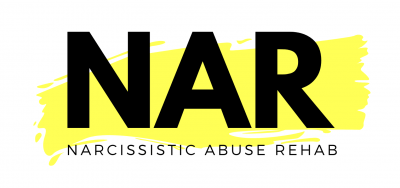Narcissistic abuse is a serious issue that can impact people of all ages, including students. It’s especially concerning because learning to navigate new social dynamics and form healthy relationships is an important part of the student experience. Unfortunately, many students encounter relationships that become manipulative and toxic.Here’s where education can play a vital role. By teaching students to recognize the signs of narcissistic abuse, we can empower them to build stronger, healthier connections.
Signs of Narcissistic Abuse
Here are some examples of what narcissistic abuse looks like.
Devaluation and constant criticism – In a relationship with a narcissist, the partner is often bombarded with negativity, disguised as “help” or “advice,” but ultimately aimed at chipping away at their self-esteem. This relentless criticism creates a dependence on the narcissist for validation, making it harder to leave the relationship.
Control and manipulation – Narcissistic people are manipulative and employing tactics like gaslighting and emotional blackmail to exert control over their partners. These techniques can be highly destructive, causing victims questioning their own sanity and trapping them in a cycle of emotional abuse.
Selfishness and lack of empathy – Driven by an inflated sense of self-importance, narcissistic people tend to prioritize their own desires and neglect their partner’s emotional needs. This lack of empathy makes it difficult for them to show genuine compassion in the relationship. These signs are not always noticeable at the beginning of a relationship. But they become more obvious over time. Because young people are less experienced they are often more susceptible to narcissistic manipulations. This kind of abuse can derail students academic aspirations because it can lead to mental health conditions, including major depression and chronic anxiety. For this reason, it is essential to educate students about narcissistic abuse.
Students should also be advised of tools and services they can use to help them keep up with their studies, including tutors, apps, and support services. Many may think to themselves, “I wish there were someone I could pay to do my homework.” However, it is important to seek support from trusted colleagues and remaining compliance with the schools content policies.
The Role of Education in Recognizing Narcissistic Abuse
It is important that educational programs in colleges include information about the psychological aspects of relationships, including narcissistic abuse. In this way, students will be able to:
● Learn to recognize warning signs of this pattern of behavior.
● Understand that healthy relationships are based on mutual respect and support.
Courses in psychology and sociology
Learning basic concepts of psychology and sociology can help students understand the mechanisms behind narcissistic violence. This includes:
● Understanding personality disorders,
● Power dynamics in relationships,
● Methods of manipulation.
Trainings and seminars
Various practical trainings and seminars with role-playing and discussions of real-life situations will help students develop skills in recognizing and counteracting narcissistic violence. Such activities can be conducted by psychologists and experts in the field of interpersonal relationships.
Support and Resources at College
Colleges can provide a variety of support for students who are experiencing relationship problems. These can include support groups, information resources, and more.
Awareness campaigns
Running awareness campaigns about narcissistic violence and its signs can help students be more conscious in their relationships. Such campaigns can include:
● Lectures,
● Distribution of information materials,
● Holding thematic events.
Specialized Coaching
Students can also learn about narcissistic abuse, and receive one-on-one support using our recovery coaching service.
Personal Skills Development
It is essential that students learn to develop their personal skills. It is the latter that will help them avoid toxic relationships and build healthy relationships based on respect and harmony.
Emotional literacy
Emotional literacy skills are:
● The ability to recognize and express one’s feelings,
● The ability to understand other people’s emotions.
All this helps to communicate better in relationships and recognize manipulation.
Self-esteem and self-confidence
High self-esteem and self-confidence are key factors in preventing bullying. After all, students who value themselves are less likely to fall under the influence of manipulators.
Communication skills
Effective communication skills include:
● The ability to talk openly about your feelings and needs,
● The capacity to listen and understand your partner.
This helps to create healthy and harmonious relationships.
Summary
Recognizing the signs of narcissistic abuse is an important step towards promoting students’ emotional well-being. Colleges can create problems to equip students with the knowledge and skills to navigate relationships effectively.
These programs can cover the psychological aspects of healthy relationships and incorporate personal development skills. This training can be a key factor in creating a safe and supportive college environment, where students feel empowered to build healthy connections.






